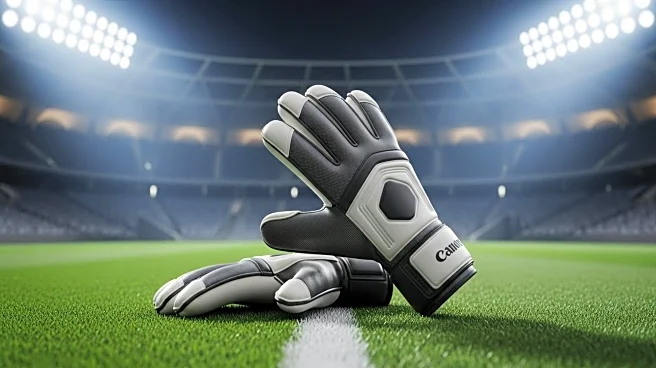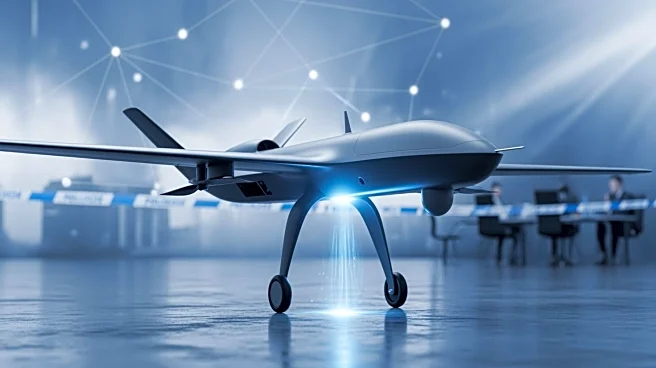What's Happening?
Manchester City has completed a £26 million transfer deal with Paris Saint-Germain to acquire goalkeeper Gianluigi Donnarumma. The Italian international has signed a five-year contract with an option for an additional year. Donnarumma is set to replace Ederson, who has moved to Fenerbahce in a £12 million deal. Ederson's departure marks the end of his eight-year tenure at Manchester City, during which he won 18 major honors under manager Pep Guardiola. Donnarumma's arrival follows a busy transfer period for Manchester City, which also saw defender Manuel Akanji loaned to Inter Milan.
Why It's Important?
The acquisition of Gianluigi Donnarumma is significant for Manchester City as they aim to strengthen their goalkeeping position following Ederson's departure. Donnarumma, known for his shot-stopping abilities, is expected to become the team's new number one goalkeeper. However, there are concerns about his fit within Pep Guardiola's system, which emphasizes ball distribution and aerial bravery—qualities that Donnarumma has been critiqued for lacking. This move could impact Manchester City's defensive strategy and overall team dynamics, as they adjust to a new goalkeeper and continue to compete at the highest level in the Premier League.
What's Next?
Manchester City will likely focus on integrating Gianluigi Donnarumma into their squad and addressing any tactical adjustments needed to accommodate his playing style. The team may also continue to monitor their defensive performance, as highlighted by Gary Neville's concerns about their backline giving opponents too many chances. As the season progresses, Manchester City will aim to maintain their competitive edge in the Premier League and other competitions, while ensuring that Donnarumma adapts to the demands of English football.
Beyond the Headlines
The transfer of Gianluigi Donnarumma to Manchester City raises questions about the evolving role of goalkeepers in modern football, particularly within teams managed by tacticians like Pep Guardiola. The emphasis on distribution and aerial command reflects broader trends in the sport, where goalkeepers are increasingly expected to contribute to build-up play and defensive solidity. This shift may influence training methods and player development, as clubs seek goalkeepers who can excel in these areas.









